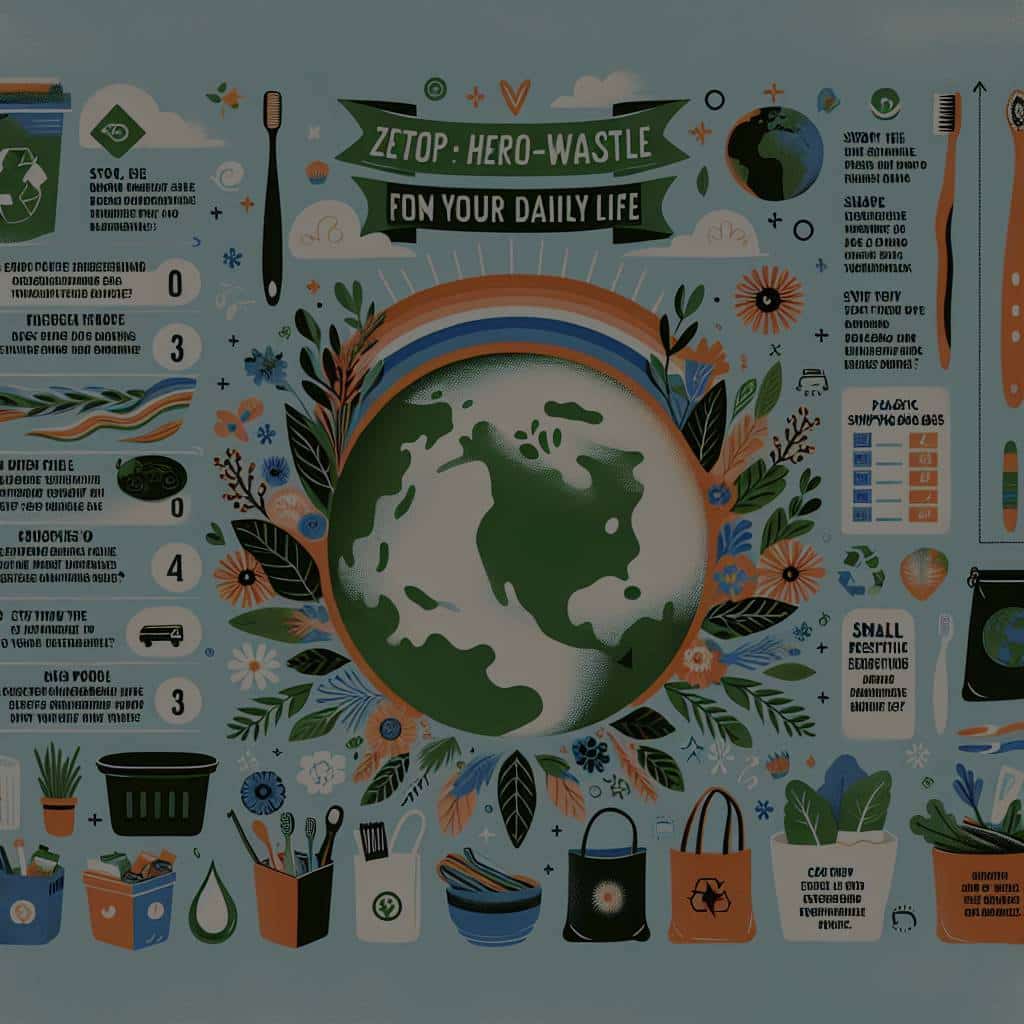How to Implement Zero-Waste Strategies in Your Daily Life?

In today’s era of burgeoning consumerism, the concept of zero-waste living is becoming increasingly relevant. As responsible inhabitants of this planet, you can contribute by implementing a sustainable lifestyle and reducing your carbon footprint. This article will guide you through the process of transitioning to a zero-waste lifestyle, focusing on minimizing waste, repurposing items, composting, and making environment-friendly choices.
1. Reducing Your Plastic Consumption
Plastic waste poses a significant threat to our environment. According to a report by the United Nations, around 8 million tons of plastic waste enter the world’s oceans every year. Thus, the first step towards a zero-waste lifestyle involves reducing your plastic consumption.
This might interest you : How Are Augmented Reality Glasses Changing the Way We Experience Sports Events?
You can start by replacing single-use plastic items with reusable alternatives. For instance, carry a reusable water bottle instead of buying bottled water. Switch to reusable shopping bags and refuse plastic straws and cutlery. Buying in bulk can also help in reducing plastic packaging waste.
Moreover, patronize local businesses that sell products in reusable, returnable, or refillable containers. This not only helps in cutting down plastic waste but also supports local economies.
In parallel : What’s the Impact of 5D Data Storage Technology on Preserving Digital Information?
2. Sustainable Choices in Daily Life
Embarking on a sustainable lifestyle involves making environment-friendly choices in your day-to-day life. Consider the products you use daily – the disposable razor, the plastic toothbrush, the single-use coffee pod. Each of these items, when discarded, contributes to landfill waste.
A sustainable alternative is to choose products made from natural materials. Opt for a bamboo toothbrush, steel razor, and coffee press. Look for products with minimal or recyclable packaging.
Also, consider the clothes you wear. Fast fashion contributes to environmental pollution and waste. Instead, choose clothing items made of organic, sustainable materials. Buy from local artisans or thrift stores, and donate or recycle your old clothes.
Moreover, conserve water by fixing any leaks promptly, taking shorter showers, and using water-saving appliances.
3. Composting Organic Waste
Composting is an excellent way to reduce household waste and yield nutrient-rich soil for your garden. It involves the natural decomposition of organic waste like vegetable scraps, coffee grounds, eggshells, and yard waste.
To start composting, you will need a compost bin or pile in your backyard. Add your organic waste to this pile, making sure to turn it regularly for aeration. Over time, this waste will decompose into a rich, loamy material that you can use to enrich your garden soil.
If you live in an apartment, consider worm composting or bokashi, a Japanese method of composting that is suitable for small spaces. Some cities also offer compost pick-up services or local composting programs.
4. Reusing and Repurposing Items
Before throwing away an item, consider if it can be reused or repurposed. This habit not only reduces waste but also saves you time and money.
For instance, glass jars can be used for storage, old t-shirts can be turned into rags, and cardboard boxes can be used for organizing.
Also, consider buying second-hand items. Thrift stores, yard sales, and online marketplaces offer a wide range of items, from furniture to fashion, at a fraction of the cost of new items.
5. Recycling
Recycling is an essential component of a zero-waste lifestyle. By recycling, you help to reduce the demand for new resources and decrease landfill waste.
However, not all materials are recyclable, and different cities have different recycling programs. Therefore, it’s essential to understand your local recycling rules. Generally, paper, cardboard, metal cans, and some types of plastic and glass can be recycled.
Also, consider upcycling – creatively reusing waste materials to create a product of higher value or quality. For example, old wooden pallets can be turned into furniture, and wine corks can be made into a bulletin board.
Zero-waste living is a journey. It requires commitment, but every small change you make can have a significant impact on our planet’s health. So, start today, and make your contribution towards a better tomorrow.
6. Conscious Food Consumption and Waste Management
Being conscious of your food consumption is a critical part of zero-waste living. According to the Food and Agriculture Organization of the United Nations, around one-third of all food produced worldwide is wasted. This not only contributes to waste but also to greenhouse gas emissions.
Start by planning your meals for the week. This can help you avoid overbuying and wasting food. Before going grocery shopping, first check what you already have at home. Shop at local farmers’ markets where you can buy fresh produce that doesn’t come in plastic packaging.
Store food properly to increase its shelf life. You can freeze leftovers or excess food instead of throwing it away. Use glass containers instead of plastic bags for storage.
Moreover, you can reduce food waste by learning how to use every part of the vegetables and fruits you buy, including their peels and cores. For example, you can use vegetable scraps to make homemade broth, and fruit peels can be used for making tea or flavoring water.
Another significant way to manage food waste is to compost it. Composting transforms your food scraps into rich soil for your plants, thus completing the natural cycle of food.
Finally, don’t forget the importance of a balanced diet. Eating more plant-based meals can significantly reduce your carbon footprint.
7. Switching to Eco-friendly Cleaning Products
Conventional cleaning products are often packed with harmful chemicals that have a negative impact on our environment. Switching to eco-friendly cleaning products can be a significant step towards a zero-waste lifestyle.
Many green cleaning products are sold in concentrated forms, which allows you to reuse the same spray bottle, thereby reducing your plastic waste. You can find such products in your local stores, or you can order them online.
Another option is to make your own cleaning products. This not only saves money but also reduces packaging waste. For instance, vinegar and baking soda can be used to clean almost anything around the house. Similarly, lemon is a natural disinfectant and deodorizer.
When buying or making cleaning products, be mindful of the ingredients. Avoid products that contain phosphates, chlorine, and artificial fragrances as they are harmful to both your health and the environment.
Conclusion: Embrace the Journey to Zero-Waste Living
Adopting a zero-waste lifestyle is not an overnight process. It involves gradual changes and conscious decision-making. It’s about creating habits that will lead to waste reduction and ultimately a more sustainable lifestyle.
Remember, the goal is not to be perfect but to make better choices whenever possible. Each step, whether big or small, is crucial. From reducing single plastics and managing food waste to switching to eco-friendly cleaning products and recycling, each action contributes to the larger picture of waste management.
Living zero-waste not only helps you to reduce your carbon footprint but also to save money. It promotes a lifestyle of mindfulness, where every choice is made with consideration for its impact on the environment.
So, start today. Take one step at a time. Embrace the journey to zero-waste living. Your efforts, combined with those of others, can lead to significant changes for our planet.
